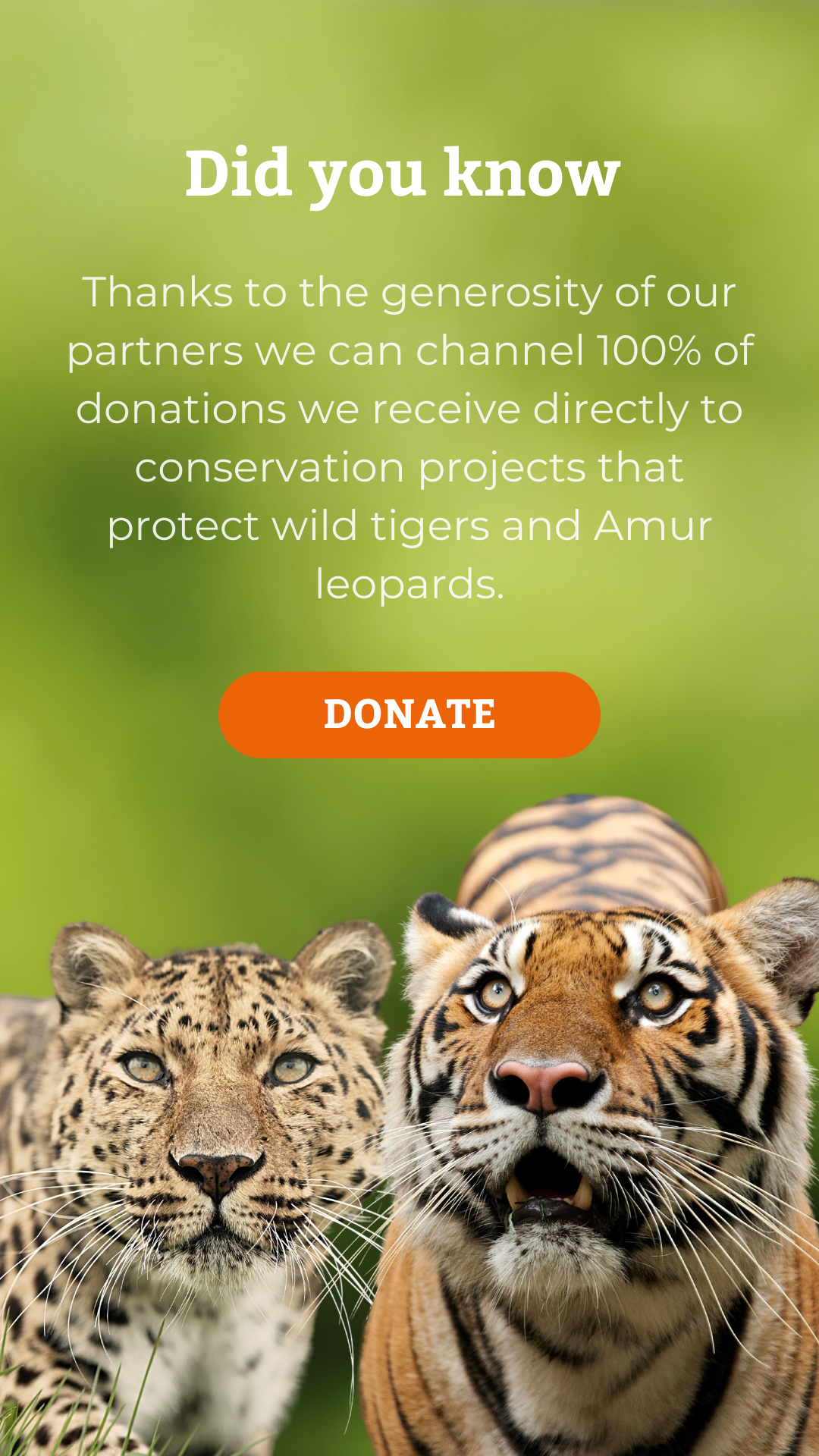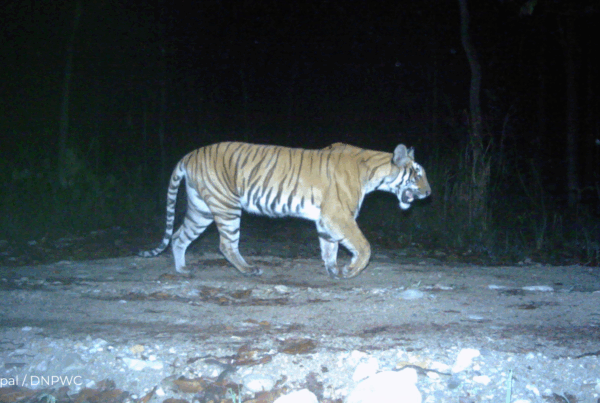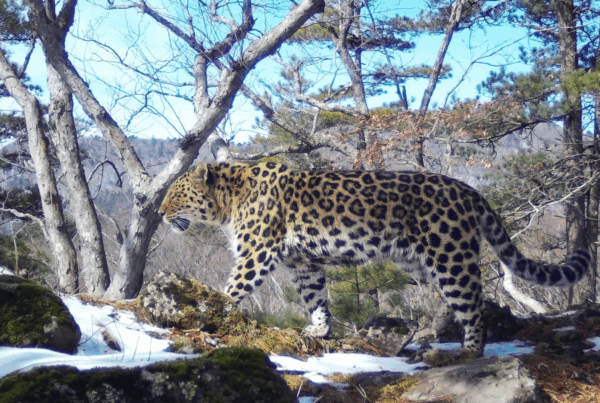- Thailand’s Khao Laem National Park, part of the Western Forest Complex (WEFCOM), is a crucial habitat for the endangered Indochinese tiger, with fewer than 250 mature individuals remaining.
- Since 2016, our project with Freeland Foundation has improved conservation measures and contributed to the recovery of tigers and prey species in Khao Laem.
- Despite progress, challenges like African Swine Fever and illegal grazing have impacted prey populations, highlighting the need for continued surveillance and mitigation.
Tiger subspecies being protected
Thailand is home to the endangered Indochinese tiger. With fewer than 250 mature individuals remaining in the wild, they are among the most threatened groups of tigers. Their population is under severe threat due to habitat destruction from deforestation and agricultural expansion, as well as poaching. Historically widespread, their range has now significantly diminished. Thailand is one of the last strongholds for the Indochinese tiger
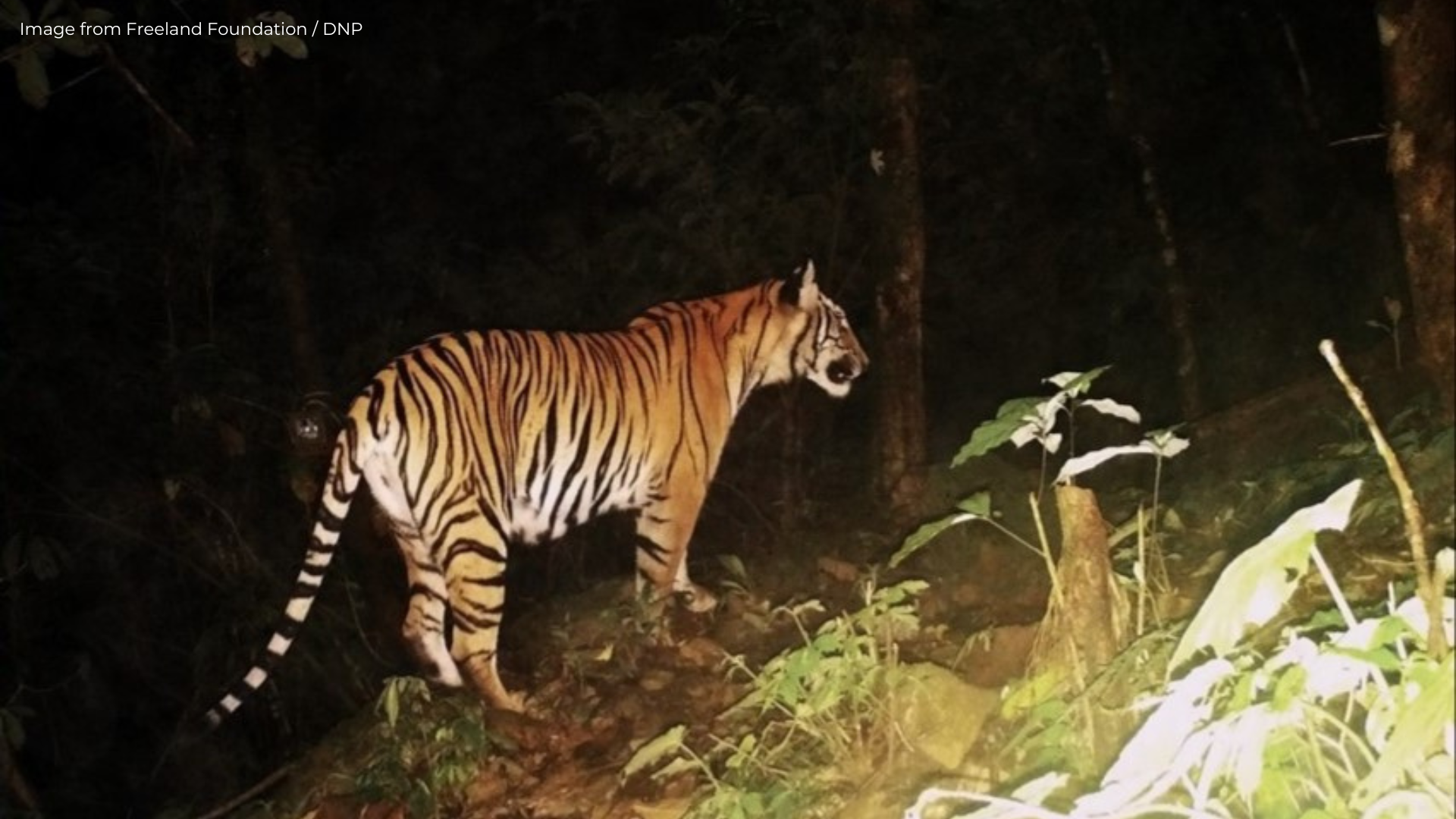
Khao Laem National Park Project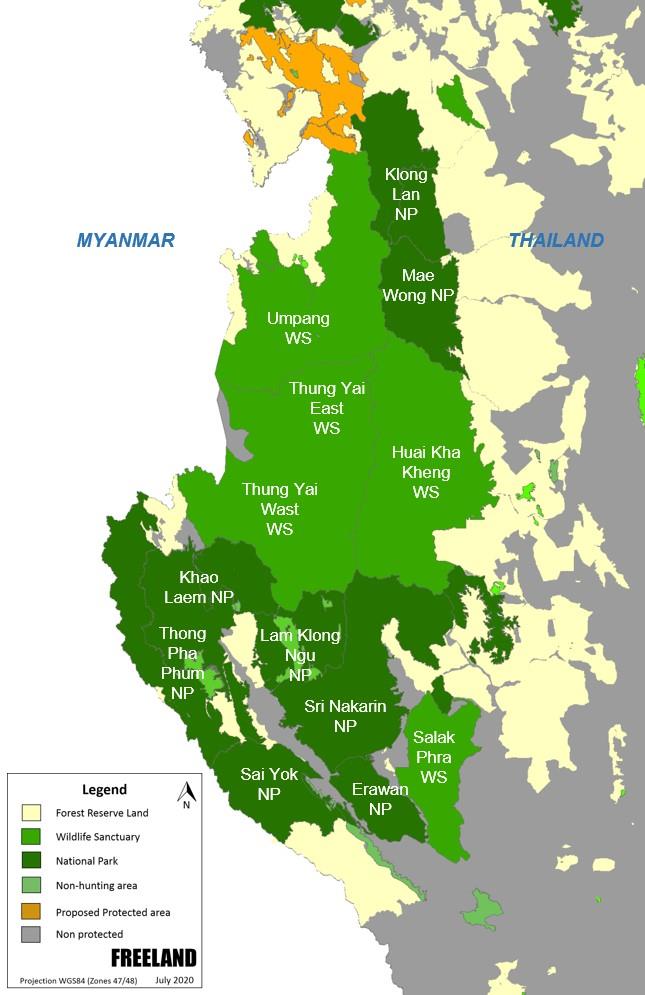
Since 2016 we have supported our implementing partner, Freeland Foundation, on a project in the Khao Laem National Park (KLNP) in Thailand. This project covers a vast 1,497km² area which is a crucial habitat for approximately 10-12 tigers. But it wasn’t always known that this national park housed tigers, it was previously overlooked due to containing a large area inundated by a reservoir. But, thanks to the surveys conducted by Freeland back in 2016 evidence confirms there is a resident tiger population which needs protection.
Khao Laem is part of a contiguous series of 18 protected areas, known as the Western Forest Complex (WEFCOM), with a combined area of more than 20,000 km2. Continuing tiger, prey and threat surveys confirm Khao Laem is both critical as a connecting wildlife corridor between the upper and lower sections of the Western Forest Complex and supports its own breeding tiger population.
Since the initial surveys, this project has significantly improved conservation measures in KLNP by increasing the capacity of officials who can now conduct thorough tiger population surveys, implement adaptive protection strategies and mitigate human-tiger conflicts. Consequently, Khao Laem National Park is experiencing a recovery of tigers and certain prey species, validated by the continued presence of tigers over the last six years.
Until mid-2022, surveys documented an increase in key prey species, creating a conducive environment for tiger breeding and successful rearing of cubs. However, the last two years have shown how precarious the situation remains, with the emergence of African Swine Fever (ASF) leading to a significant decline in the wild boar population, a major prey species for tigers. This demonstrates that ongoing surveillance for new and emerging threats is essential to introduce effective mitigation measures promptly.
2023 In Review
Monitoring: The project conducted five long-term monitoring surveys covering 225km², surpassing the 180km² target. Six tigers were documented, contributing to the national tiger identification database, though the goal was ten. Four previously resident tigers were not recorded this year, which is concerning. Prey species surveyed included serow, red muntjac, Fea’s muntjac, gaur, sambar deer, and wild boar. Due to an African Swine Fever outbreak, tigers preyed on smaller species, leading to their decline. No sambar deer were recorded in 2023.
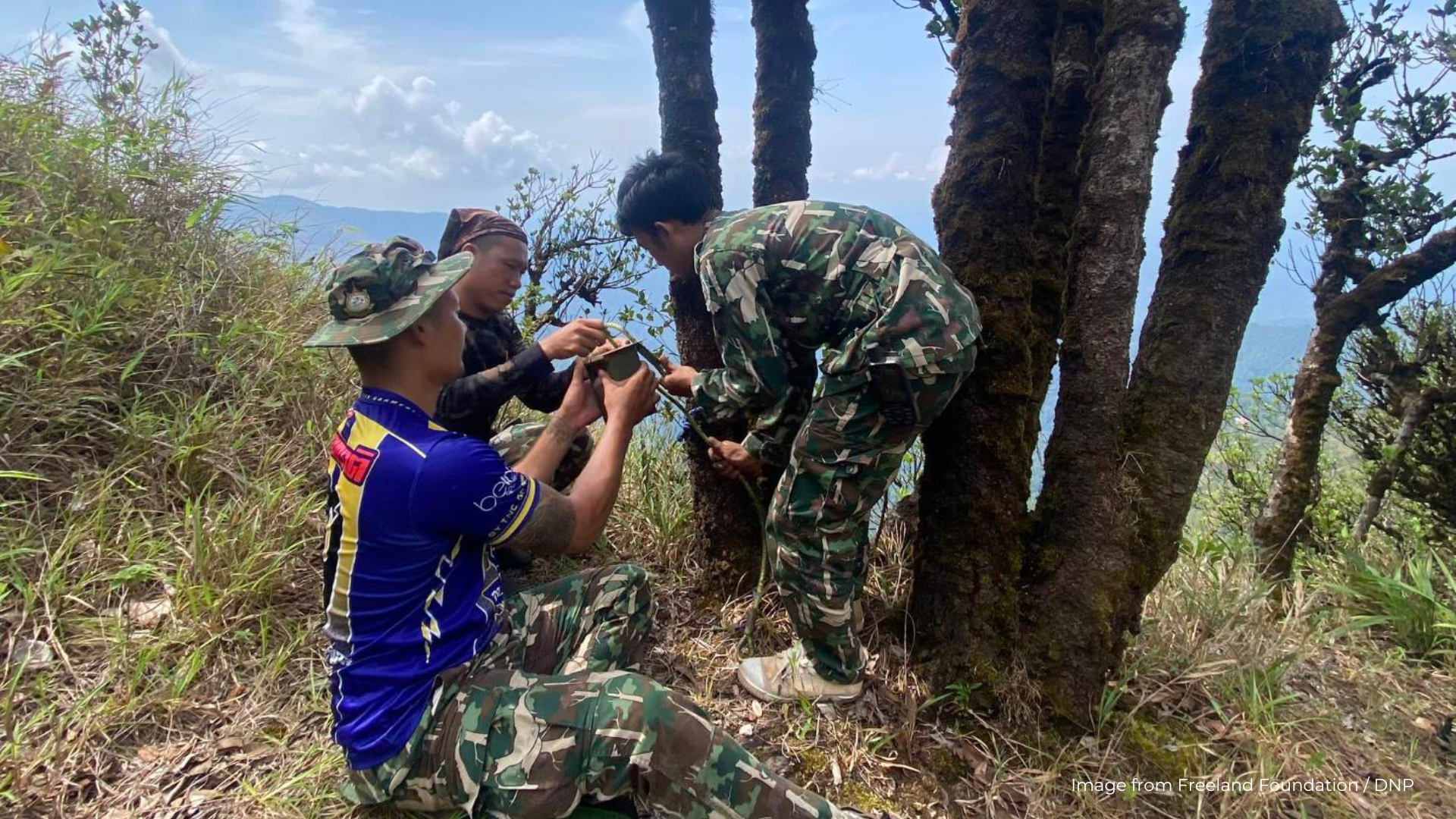
Capacity Building: The number of rangers trained in wildlife monitoring data collection in 2023 surpassed the target, with 120 rangers receiving training, some attending multiple sessions for skill refinement. Additionally, 100 rangers were trained in law enforcement to enhance park protection. These 3 to 4-day sessions covered rapid response, weapons safety, patrol tactics, navigation, first aid, emergency evacuation, and VHF radio use. Spreading the training minimized disruptions to SMART patrols, allowing immediate application of new skills during mentored patrols.
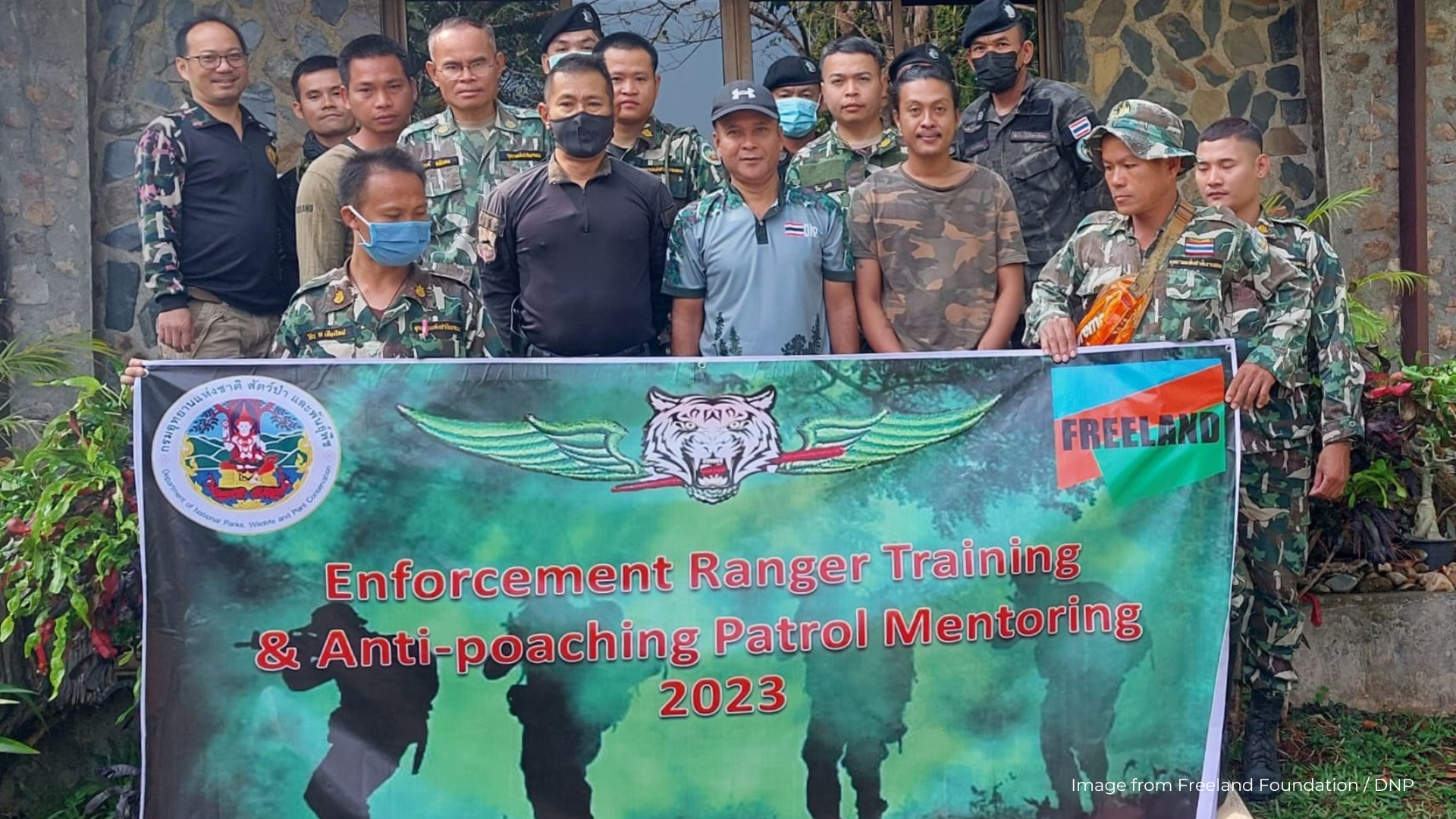
Community Engagement and Outreach: The project team conducted community outreach to villages which are known poaching hotspots to improve understanding of park laws and local regulations. Outreach efforts were also extended to try and combat illegal grazing in KLNP which is having knock-on effects on the tiger population in the park. You can find out more about this work here.
Looking ahead
In 2024, the project is expanding its efforts to Thong Pha Phum National Park, further bolstering tiger conservation in the region. Our goal remains to contribute significantly towards doubling the national tiger population in Thailand by 2034, ensuring the persistence of Indochinese tigers for future generations.

